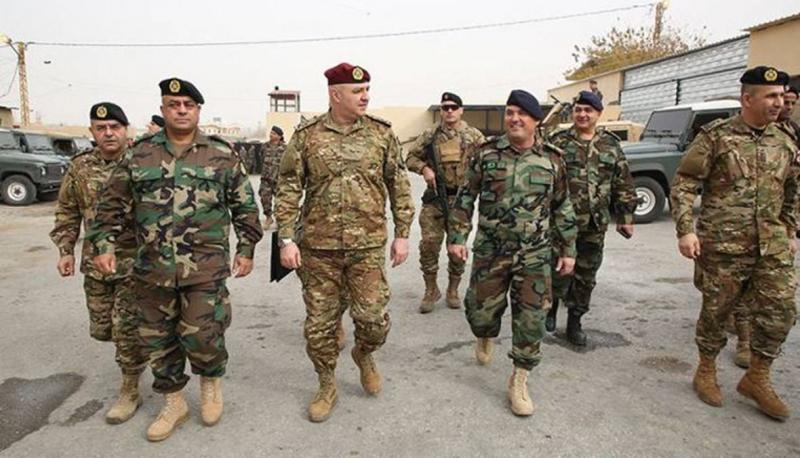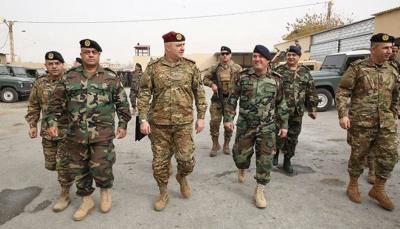On the eve of Army Commander Joseph Aoun's retirement scheduled for December 10, political debate intensifies between those opposed to his extension (National Free Current leader Gibran Basil and Marada movement leader Suleiman Franjieh) and his supporters represented by former MP Walid Jumblatt, who was officially joined yesterday by the Lebanese Forces party, whose parliamentary bloc proposed a law to extend the rank of general to allow for continued leadership of the army. Other parliamentary blocs, including the Phalange Party and members of the opposition, confirmed their attendance at any legislative session called by Speaker Nabih Berri and stated they would vote for the extension.
While the Hezbollah and Amal movements have thus far remained outside the debate, Berri was asked last night for his opinion on the expedited law proposal put forth by the Lebanese Forces bloc. He responded, "I do not legislate à la carte, nor based on their moods. When they want, they support legislation; when they don't, they boycott the council. I know what I have to do, and no one dictates to me. Neither the session date nor its agenda."
According to "Al-Akhbar," this debate is accompanied by external movements supporting Aoun’s extension due to the extraordinary circumstances the country is facing, linked to events in occupied Palestine and the possibility of opening fronts, including the southern front. U.S. Ambassador to Beirut Dorothy Shea has consistently urged all those she meets to consider extending Aoun’s term to prevent a vacuum in the presidency from affecting the army's leadership, especially since there is no agreement on appointing a chief of staff. "Al-Akhbar" sources confirm that Qatar is not distant from this movement, with informed sources stating that "the Qatari ambassador in Beirut initiated discussions with caretaker Prime Minister Najib Mikati about this matter some time ago."
These developments come after two weeks of communications, which Basil was not far from, as Jumblatt revealed in an interview the day before yesterday, indicating he had suggested the idea of extending the army leadership to Basil. However, the response came from Hezbollah’s side not wanting to corner Basil. Notably, the party, according to insiders, "remains detached from the debate and has not communicated a decisive stance formally to any party, including the Prime Minister, Jumblatt, or Basil, and continues to study the matter." These insiders assert that "Hezbollah, during this critical phase the region is undergoing, cannot approach the leadership file based solely on the interests of its allies or friends or link it to the presidential vacancy, which appears to be prolonged. Instead, its approach to either extension or appointments will be connected to the needs of the military establishment and what the internal arena requires for consolidation in case of any developments," noting that "other options are still under consideration and remain firmly on the table."
Informed sources mention that matters have become easier after the Lebanese Forces announced their supportive stance, so there will not be a constitutional problem of a group in the country imposing an appointment in the top Maronite position following the presidency. Additionally, the idea of an extension from within the parliament has become the easier option, as obtaining a decision through the government faces many obstacles, particularly regarding Defense Minister Maurice Sleem, who objects to completing appointments, alongside Basil's desire to appoint a new army commander and complete military appointments in a consensus format, meaning decisions would require a vote from all ministers rather than a majority, potentially establishing this principle for all future decisions. This is something other governmental forces would not agree to unless a settlement encompassing all appointments, particularly the appointment of a new army commander, was reached.




